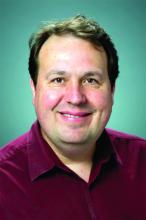Part 3: Nature is nurture (and vice versa)
As the science progressed, it became increasingly clear that the nature and nurture domains were hopelessly intertwined with one another. From early PET-scan studies showing that both medications and psychotherapy not only changed the brain but also did so in ways similar to behavioral-genetic studies showing how genetically influenced behaviors actually cause certain environmental events to be more likely to occur, research continued to demonstrate the bidirectional influences of genetic and environmental factors on development.5,6 This appreciation rose to even greater heights with advances in the field of epigenetics, which was able to document some of the specific mechanisms through which environmental factors cause genes involved in regulating the plasticity of the brain to turn on and off.7
Given this modern understanding, the question of nature versus nurture ceases even to make sense in many ways. As an example, consider the developmental pathway a 10-year-old boy might have taken before eventually presenting to his pediatrician for severe general and social anxiety. He may have inherited a genetically based temperamental predisposition to being anxious from his parents, who also may struggle with anxiety. Then, those predispositions easily can evoke responses from his parents and teachers to shield and perhaps overprotect him, thereby limiting his opportunities to overcome his anxiety further. He selects friends and activities that match his more inhibited temperament. All of these environmental effects – some of which have been triggered by the boy’s genes – result in real changes with regard to his brain structure and epigenetic modifications, with the end result being an anxious child whose stress pathways in the brain have been reinforced while the circuits involved in emotional regulation are not as structurally or functionally strong as they otherwise would be.
In thinking through some of this complexity, however, it is important to remember the hopeful message that is contained in this rich understanding. All of these complicated, interacting genetic and environmental factors give us many avenues for positive intervention. Now we understand that not only might a medication help strengthen some of the brain connections needed to reduce and cope with that child’s anxiety, but so could mindfulness, exercise, and addressing his parents’ symptoms. When the families ask me whether their child’s struggles are behavioral or psychological, the answer I tend to give them is “yes.”
Dr. Rettew is a child and adolescent psychiatrist and associate professor of psychiatry and pediatrics at the University of Vermont, Burlington.
Email him at pdnews@frontlinemedcom.com. Follow him on Twitter @pedipsych.
References
1. “English Men of Science: Their Nature and Nurture” (London: MacMillan & Co., 1874)
2. “Temperament: Theory and Practice” (New York: Brunner/Mazel, 1996)
3. “Nature and Nurture during Infancy and Early Childhood” (New York: Cambridge University Press, 1988)
4. Nat Genet. 2015;47(7):702-9.
5. Arch Gen Psychiatry. 1992;49(9):681-9.


